
The "Listen to Musicians" section is a section where professionals who usually play music on the stage can go down the stage and speak in words.This time, we will interview the guest, Akiko Tsuruga, a Hammond organ player who is active in New York. She would like to talk about "being active in New York as a Hammond organ player".
-Profile of Akiko Tsuruga-
Akiko Tsuruga
He started organ when he was 2001 years old and studied under Fumiko Takadera, Shigeo Sekito and Munehiro Toma.He woke up to jazz when he was at Osaka College of Music and studied jazz piano under Zensho Otsuka.After graduating from him, she started working as a pianist in the Kansai area.He then self-taught the Hammond Organ and moved his home to New York in 2003.He studied piano under Sir. Roland Hanna and organ under Dr. Lonnie Smith.In the same year, he made a regular appearance at Harlem's long-established organ club, "SHOWMANS". He has performed with Grady Tate (Drums, Singer), Frank Wess (Ts, Fl), Paul West (Bass) and more. In the Grady Tate group, he performed at Lincoln Center's outdoor concerts and jazz clubs such as Blue Note. In March 3, he was introduced as a promising organ player at Time Out New York.In May of the same year, he performed his first live in Japan and was introduced in Swing Journal and jazz criticism. Released the album "Harlem Dreams" from M & I in the spring of 2004.He also worked on translation and published "Hammond Organ Complete: Tunes, Tones, and Techniques for Drawbar Keyboards (by Dave Limina)" from ATMs in the fall of XNUMX.He is currently one of the hottest organ players in NY.
-Can you tell us what made you originally interested in music?
When I was three years old, one day Electone came to my house and the musical instrument store who brought me played a simple song.He wondered how wonderful it was to hear it (laughs).Originally, he seemed to be a kid who was happy to listen to music, and when he was a kid, he loved clapping his hands and singing songs to the music on TV.So it seems that my parents thought I should learn something.I can't play the piano because the house is small, but I can make various sounds with the Electone.So it was cool to hear the Electone, so I started going to a music class in my neighborhood to learn it.
-At that time, did you have anything like jazz or classical music that you wanted to do?
There is no such thing.The piano sensei also taught the electone.I'm dealing with electone, but I'm doing a piano book.At first it was a piano book, but after that I did something like a complete collection of songs from around the world.It has a code name written on it, and I play it.I think there was a jazz song in it when I think about it now.After that, sensei was a sensei specializing in electone.There are grades of Electone, but when I took the grade test, the first thing I got into was fusion. sensei's son was playing drums, listening to fusion and playing a band with him.I attended a specialized course when I was in high school, but I was learning from an electone player. I was playing Giorgia on my mind on the score.Or Manhattan is a song.When I think about it now, I really like Jazzy songs, and if I want to play more songs like this, I asked sensei to listen to Jimmy Smith.There is a library in the classroom and I listened to the records.Then what's wrong!(Laughs) sensei he is great!I was talking about it very hotly, but at first I felt like it was amazing.It feels like a flood of sounds.They all sound the same.I thought there was something like this.Until then, I had never heard of the Hammond organ.So I wondered if this was a Hammond organ.
-So did you decide to start playing the Hammond organ around that time?
No, at that time I wanted to go to the composition department if I wanted to do it.However, when I was in my third year of high school, sensei, who was introduced by Electone's sensei, seemed to have no connection to the composition.Somehow, that sensei is also a very interesting sensei, and if a music college comes out, it's convenient for a matchmaking, so I recommend the music college (laughs).At first, there was a music department at Mukogawa Women's University and Yamate Junior College, and I wanted to go to the music department there, anyway, the composition department.But when sensei was attached to "Otodai", he was said to be strong at the time of matchmaking (laughs).You may not know it now, but I was told that I would understand it when I grew up (laughs).That was May of high three.I had never played the piano before.So, the monthly fee for Electone was very high, and although I'm the eldest daughter of three brothers, I couldn't afford to spend more than that (laughs).So, if you go to the music college, you really have to get different sensei, such as tone.But in the case of that sensei, it feels like I'm going to put it all together, and tell me anything.It was interesting because the way of thinking changed.I used to go to study just for the exam, but when I was nervous and went to see him, I was told that it would be convenient for me to meet him (laughs).So I started to learn, and I didn't play the piano at all, so I started Sonatina from there.Electone is a little rest.
-So why did you wake up to jazz after you entered Tokyo College of Music?
I entered classical music, but everyone was good at it, so I thought I couldn't keep up with it (laughs).The college piano sensei I learned said that I was playing the electone before, so I was always told that the shape of the hand was bad or that the shape of the hand was bad.I went to school because I wanted to play classical music, but I wasn't motivated.Even if that wasn't the case, the piano was tough because the keyboard was heavy.Doesn't it fit in my hand?I've been practicing for a long time.But from that time on, I started doing Electone as well.That's because I thought it would be better to take a Yamaha grade for the future.At that time, Yamaha had more jazz songs as the grade went up.It was like a big band alone.Electone is more like a synthesizer, like brass or string section.So, I heard that it's easier to take a jazz song when taking the exam ..... (laughs).I also had a library at school, so I listened to Oscar Peterson.Around that time, my friend, who had been learning the electone with me since I was a kid, started learning the jazz piano.To Yoshiaki Otsuka.I thought it was interesting.Oh, I thought it was.That's why I graduated from Tokyo College of Music and became a Yamaha Electone instructor.I became an instructor, but after all I decided to take the grade test properly. Did I say up to 3rd grade?There are instruction grade and performance grade, but I took all of them.Shortly before I got that grade, I went to learn jazz piano from Zensho Otsuka.I thought it was interesting.At that time, the world was a bubble, and there were a lot of newcomers' jobs.On a solo piano.My friends were pretty clean and sociable, so I got that kind of work in no time (laughs).I think it's especially in Osaka, but it may be everywhere, but I think people who are a little cute and sociable can get a job (laughs).Someone's sub.She was really looking for her own sub.So she tried to force me to do a sub (laughs).Ah, before that, when I was in college, there was a place like a piano bar in the neighborhood, like a piano cafe, but I went there to play.I used to play something like jazz alone on the piano.
-Then, you've been playing jazz since you were in college.
By the wayI was looking at the score.
-Did you find something that attracted you to jazz?
Classic is not interesting (laughs).
-So, was jazz interesting?
It was interesting.You can play ad lib and you can make it yourself.
- Tsuruga is a Hammond organ player, but some people are not very familiar with this instrument, so could you briefly explain what the Hammond organ is?
Hammond organ
The Hammond Organ is an electric organ invented in the United States by a watchmaker, Laurens Hammond, and is the same as the clockwork of watches.It was created with the concept of using the vacuum tubes of the organ and making the pipe organ more home-use.Using the clockwork technology, if you make the pipe organ smaller and press a key, there are 7 contacts, and there are things that switch to various sounds called drawbars.By pulling it out, you can make various sounds.We also use a Leslie speaker, a speaker with wings on top of the speaker.I make these wings ring, but to put it simply, this effect is near the electric fan, and if you say wow, it makes a vibration sound, isn't it?
Note) Hammond Organ Complete: Tunes, Tones, and Techniques for Drawbar Keyboards (written by Dave Limina) Translated by Akiko Tsuruga
-Can you tell us what made you attracted to the Hammond organ?
I started working on jazz piano in Japan, and I was doing regular work somewhere in Osaka.So I started going to a jam session because I was doing a jam session.At that time, there was a person playing the organ, and I thought it was cool, but even if I played the organ alone, no one else could do it, so I was playing the piano very hard.I had regular and jam sessions every day at that time.That was in front of Blue Note, so a lot of people from the afterstage came from Blue Note.That's why Roy Hargrove and Grady Tate also met there.At that time, there were a lot of pianists, and the piano didn't turn very much, but when I played the organ, there weren't many people who could play the organ, so I could play it all the time, so I started playing the organ (laughs).There, a drummer from Tokyo told me that he was good at organ (laughs).I thought so (laughs).I've been doing it for a long time, and unlike the piano, the organ has a light keyboard, so I don't have a hard time making sounds.I've been doing it since I was a kid, so it feels like it fits in my hand.
-Why did you decide to go to the United States even though you are doing professional work in Japan like that?

Live in new york
After having friends of the same generation, we all went to the United States (New York and Boston) to study abroad.That's why I started going to America.At that time, I met Grady Tate in Osaka.At that time, I was coming with Jimmy Smith, but when I said that I also played the organ, I was told that I didn't like the organ, I played the piano (laughs).At that time, Grady Tate came about once every six months, so I was told that I should come to New York if I met him again and listened to it.At that time, I was told that, and I had a friend in New York, and I went to New York about once a year.My friends were playing in New York as such, so every time I went, I wanted to try it, and I thought that if I came here, I would be waiting for a lot of fun. I wonder if I can do it for about a year, to save money.I had a part-time job and saved some money, so I was a little wondering whether to buy a B1 (note: organ type) or go to New York, but I decided to go to New York anyway.
-At that time, you went to New York for the purpose of music activities, didn't you?
At that time, I was determined to play the organ.In Japan, I didn't do it as a home player, and especially the organ was rarely played by someone's band as a sidemen.I liked to hang in the back of people, so I thought I would like to study like that.When I went to America, I thought there would be a lot of musicians and I would have the opportunity to play in the back of people.
-Did you have a strong sense that New York is home?
The air flowing in New York was different, and I thought that just being here would allow me to grow tremendously.
-How do you create your own musical style for Tsuruga-san?
It's something I'm listening to at that time, and if there's something I want to do like this, I'll try to imitate it.I was surprised to come to New York rather than style, but everyone dances to the organ.It was just around the corner when I came to New York, but at the seafood restaurant in Harlem's 125th Street, I immediately played a gig with a vocalist's song.The saxophone friend I'm still working with is definitely an organ if I'm going here, so why?I heard that there is no base player (laughs).It's a difficult city to find a bass player, so if you play the organ, you can play the bass, you can play the piano, and this one definitely has a job.I didn't think about that at all, and I thought I'd go home when I ran out of money.At that time, I thought.So, when I went to Showmans, I was scared at first, so when I took my body guard, I was kicked back, or rather, I was refused.So, for the second time, I thought it would be good if I was a female, so I took my friend's female and let me in.That's why we went there quite a bit.Then the shop staff seemed to notice.
-Did you pretend to be a customer?
Yes, of course I was thinking of taking a gig.The shop staff also remembered me, and then I went alone.Then my friend said that I could definitely get this gig (laughs).You say it's another breath.I went with him to take Grady Tate with me.It happened that a vocalist came, so I decided to do it with three people.If there are three people in the shop, I'll do it.So I started going to Showmans and quite soon I started going to different days.When it was a lot, I got it regularly about 3 days a week.I got another gig from someone I met there.After that, I moved, but when I asked why I moved, I realized that it was impossible to carry an organ without a car (laughs).At first I carried it on the subway, but it was really hard (laughs).So if you don't have a car, you should move to an easily accessible place.It's really heavy, and once you carry it, it's heavy enough to bruise all over your body (laughs).It's too heavy for anyone to help (laughs).Now I have a keyboard that is a little lighter and sounds better, so I'm using it.
-Currently, you are playing with Japanese and foreigners. Is there any difference in race when you are playing together?
There are people of various races in New York.White or black.Even though I didn't follow, everyone except me did it in a band called black people, but at that time I thought they were amazing.I wonder what the atmosphere is, the feeling is important.For example, foreigners sing enka.But somehow it seems to give a feeling, isn't it?That's how it feels.Of course I did my best at that time.This is the same as when a foreigner tries to play the Tsugaru shamisen, but it doesn't feel good. But I think I can understand that only the feeling is transmitted.I think that's because I've been listening to enka since I was little, and because I grew up in that kind of Japanese culture.After all, I thought that it was the same thing that we Japanese foreigners play jazz.But when a foreigner does a Japanese enka, it will be quite interesting if he does the same thing with different sensibilities.That's why we, who are quite foreigners, play jazz because we see jazz things from a different perspective from the perspective of Americans, and I think that's what makes it interesting.
-Do you think that you don't feel well during the performance?
No, I've tried hard, but I have an image that I want to play like this.For example, Jimmy Smith's keen playing is delicious.I'm thinking of playing it, but at that time, the sound of Eric Johnson playing the guitar with a single note is cooler than I do (laughs).
-Why do you think that kind of difference will occur?
After all, one is the difference in culture.And even though they have a great feeling, they feel very relaxed.I think there are Japanese players who play with feelings and passion, but somehow I'm doing my best!I think there are many people who end up with something like that.Thinking about what's different, in the case of Americans, I'm really focused on playing, but I'm relaxing during that time.I think my shoulders are weak.I think it's because Americans have that kind of feeling from the beginning.If you're Japanese, you should start that kind of groove feeling by getting a jazz feeling.I don't think there is a technical difference between Japanese and Americans, but it's a difference in feeling.Certainly organs are difficult, though.The Hammond organ has a rise when you play the melody with your right hand, the bass with your left hand, and the bass you play with your left hand with the bass pedal, for example, when you play the wood bass. ..If you haven't practiced for a while, it will fall apart.
-By the way, how long do you practice?What about after becoming a professional?
When I came to New York, what I thought most was how I didn't practice in Japan.After coming to America, I thought that what I really needed was practice.Everyone in New York is really practicing.For example, I had the opportunity to listen to the organ personally with an organ player named DR. Lonnie Smith, but I play it all day long.While watching TV (laughs).I put the organ in front of the TV, and I play the organ and move my hands without looking at the TV.When the TV becomes interesting, stop the organ and make the TV sound louder (laughs).When I saw that, my outlook on life changed.If I do it while watching TV, I should concentrate on doing it, so the method is different. In the case of DR. Lonnie Smith, it is important to touch the instrument anyway, so when you wake up in the morning, you first touch the instrument, and before you go to bed at night, you touch the instrument.It's like living with an instrument.
-Are there any particular things you are particular about when doing music activities?
Jazz organ player
It means that we never make music that people can't dance to.I will never play music that is overwhelmed by the score and does not shake the listener to the rhythm.
-What is the difference between Japanese and American customers?
The reaction of American customers is more direct than that of Japanese customers.If it's good, I'll say it, and if it's not so good, I'll talk a lot.If you feel good about it, the reaction to it is really direct.Last year, a CD (Note) came out in Japan, and I did a live tour in Japan. At that time, I think Japanese customers have different national traits, but it's kind of confusing, but I'm really happy. There is a feeling.What I was happy about in Japan was that everyone was looking at it with a very hard facial expression at first, but it's really fun to see the facial expressions of the customers gradually softening.The difference in national character is interesting.
(Note) "Harlem Dreams" (released on May 2004, 05)
-What was the most exciting moment when you were doing music?

After all, when I play with a very good member and a very good customer, the beat feels so good that I don't want to quit.
-Does it depend on the band members?
The organ is a heavy burden for me, so I'd be happy if you could support me.In that sense, the mood changes depending on the members.He also plays in the Grady Tate band, but it's always fun to play with him.He is amazing.He often plays in vocal bands, but after all he's like a jazz singer, and he has so many drawers that it's fun to play with him.He knows all about jazz, he has ideas, and even if he's really scat singing, he feels like he's drawn to the inflection.He feels like he's getting better.It's that different.The quality of the band will improve at once.
-Are there any influences you have had in New York?
I was influenced by the spirit of the beat and the music.After all, there are many people who come to New York to play music from various places, so everyone is desperate to live.There are not many guarantees, and if that happens, competition will naturally intensify.Then I can't live without a passion for music.Of course, there are many people who can't go up even if they have passion.
-What is jazz and music for Tsuruga-san?
It's my life. Something like Dr. Lonnie Smith says, "Make life a sound."
-It's cool.What are your dreams for the future of those who are living such a life?
I want my music to make the listener happy and happy.
-Do you think there is a secret to success as a musician overseas?
I think it is to do our best to people.No matter how good a person is, I think that a person who is sloppy will be in its own way.I think Japan and the United States are the same, but I think it is necessary as a human being.As with Grady Tate, there is a consciousness to grow jazz.It's not famous or intimidating.Probably the condition for success is to grow as a human being.
-Can you tell us about your future performance activities?
(2005) Next month, in August, I will be out in a trio for a week at the Lincoln Center after hours.With Eric Johnson (guitar) and Vincent Ector (drums). I will return to Japan on a tour from the end of August.This is Eric Johnson and Fukuji Tainaka.I usually do my band once every two months with Cleopatra's Needle, and occasionally with Smoke and SHOWMANS.
-Please give a message to those who are thinking of studying abroad in the future.
I think it's faster to come to the United States after doing everything you can in Japan.For example, even if you come to the United States, you should acquire the skills to play with people immediately.When I come to the United States and try to learn from scratch, I have problems with language and I am overwhelmed by my life.I think it's good to come to the United States, play with people, and reach a level where you can manage even if you don't understand the language.It would take more time if this was from scratch.What you can learn in Japan is learned in Japan.Not only jazz, but also classical music, but I don't recommend coming to America as a complete beginner.I think it's better to do what you do in Japan and gain some experience.
-Are there many connections to get a job?
After all there are many connections.So if you do your best to everyone, the story will come around.Even if you don't like it, smile.I can't do it easily (laughs).Sometimes I couldn't speak and I didn't know what to say over there.Her smile is universal, and sometimes she is said to be stupid (laughs).After all, a woman is charming (laughs).
-In the end, should I go to America for jazz?
I think it's best to play music once you have your own style of music, but as long as you're playing jazz, it's definitely a plus to experience the mood of the city here. Let's do it.
-Thank you.


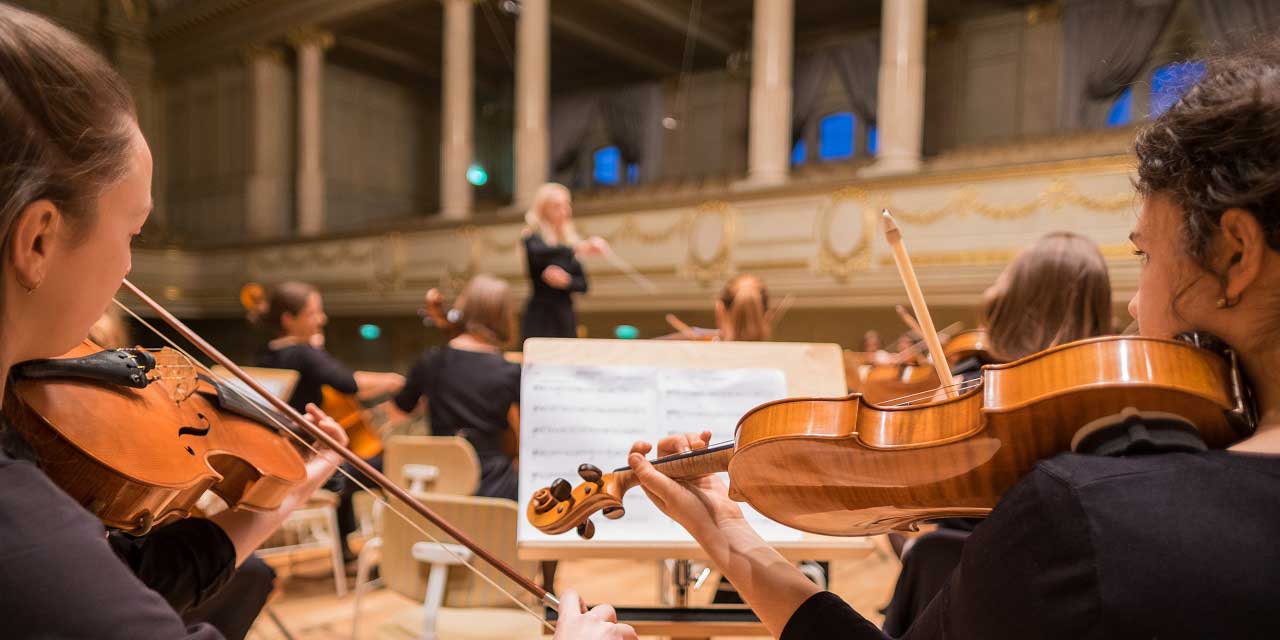
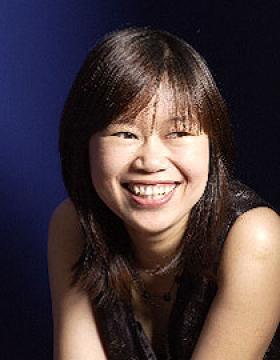
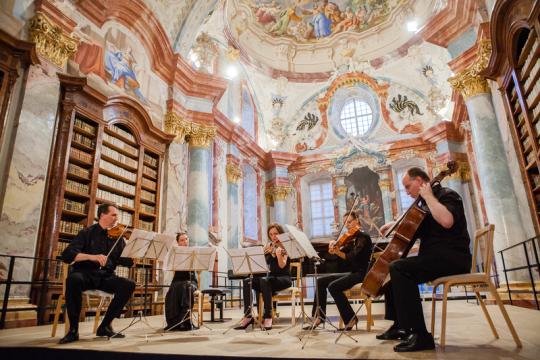
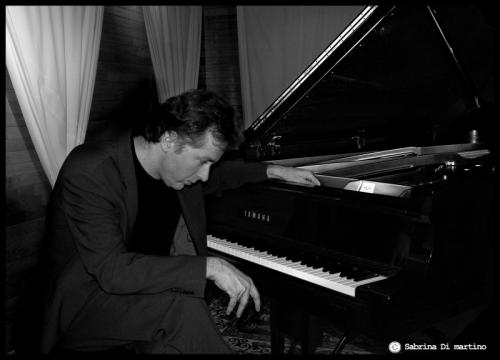
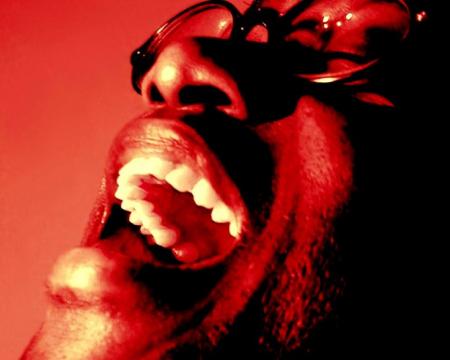
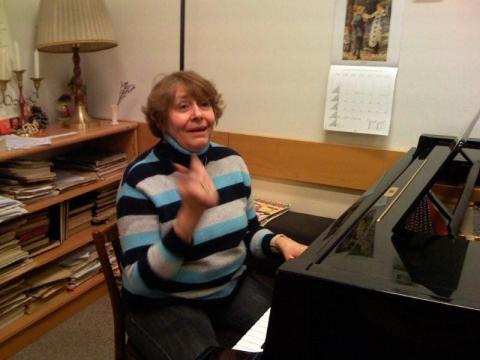
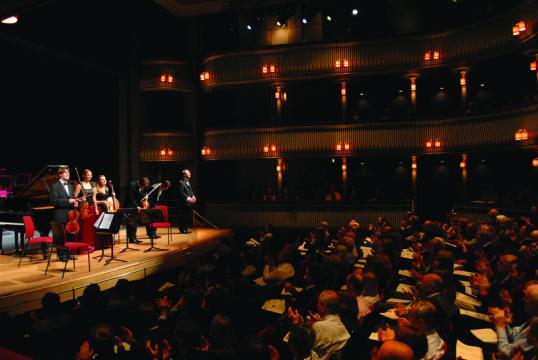
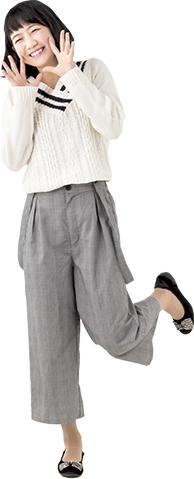

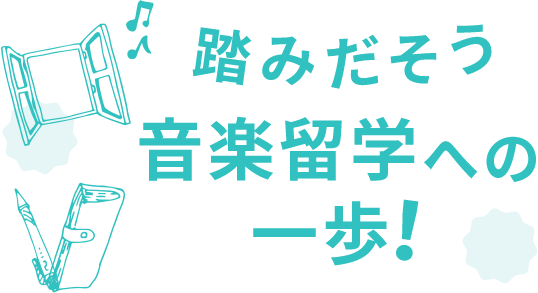
 Book a Counseling
Book a Counseling